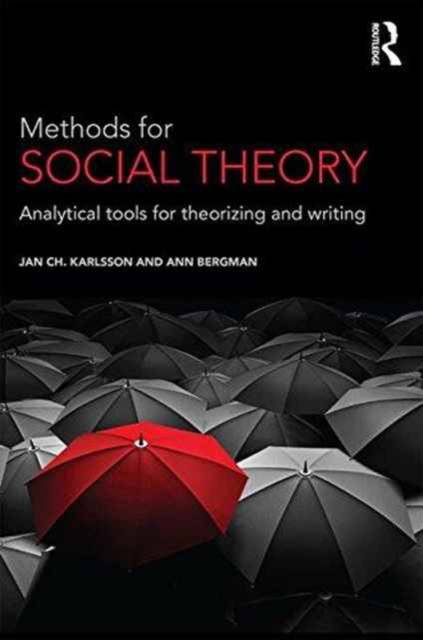
- Retrait gratuit dans votre magasin Club
- 7.000.000 titres dans notre catalogue
- Payer en toute sécurité
- Toujours un magasin près de chez vous
- Retrait gratuit dans votre magasin Club
- 7.000.0000 titres dans notre catalogue
- Payer en toute sécurité
- Toujours un magasin près de chez vous
Methods for Social Theory
Analytical Tools for Theorizing and Writing
Jan Ch Karlsson, Ann BergmanDescription
This book constitutes a practical guide to the important skills of both theorizing and writing in social scientific scholarship, focusing on the importance of identifying relations between concepts that are useful for explaining social entities and of producing a text that convincingly advances the theory that has been constructed. Taking as its point of departure the distinction between the research process and the reporting process - between clarifying one's ideas to oneself and writing to express these ideas clearly to others - this volume concentrates on writing when theorizing as a way of thinking, emphasizing the series of relations that exist between ontology, epistemology and rhetoric upon which successful theoretical writing depends.
Richly illustrated with practical examples, the book is divided into two parts, the first of which presents techniques for theorizing based upon visualized and logical connections of ideas, concepts and empirical patterns in both free and systematic ways, and the second part providing techniques for structuring and presenting arguments in essays, papers, articles or books.As such, Methods for Social Theory offers a toolbox for the development and presentation of social thought, which will prove essential for students and teachers across the social sciences.
Spécifications
Parties prenantes
- Auteur(s) :
- Editeur:
Contenu
- Nombre de pages :
- 168
- Langue:
- Anglais
Caractéristiques
- EAN:
- 9781472472847
- Date de parution :
- 15-12-16
- Format:
- Livre broché
- Format numérique:
- Trade paperback (VS)
- Dimensions :
- 156 mm x 234 mm
- Poids :
- 267 g

Les avis
Nous publions uniquement les avis qui respectent les conditions requises. Consultez nos conditions pour les avis.






